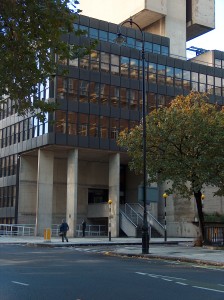The purpose of this Q&A series is to explore the different stages of a career in legal academia. We are hoping to collect contributions from academics in a variety of roles. The series is aimed at anyone interested in pursuing a legal academic career.
What is your current role and how did you get there? What has your career trajectory been like?
I currently work at Pakistan College of Law as Principal. I have been attached with the college for past twenty years. I started as a tutor and continued to work in different capacities which involved both academic as well administrative sides.
I had been mostly involved in teaching core courses, developing new programmes and establishing research and publication centres.
Did you always know you wanted to work in academia?
I do hold a licence to practice law in the higher courts. Initially in my career I did work as a law practitioner for a while and still work intermittently with a law firm as their legal consultant. However, my main passion remains the academic work that I do. I have always had a serious liking for the academic career. The main reason could be my own preference for research and writing, and also the dissatisfaction that I had with the quality of legal academy and discourse in Pakistan. I strongly believe that for a positive and effective change to come, the development of academic sector in legal discipline is necessary.
What are the things you like the most about your current role? What are the challenges?
My current role is multi-fold. I have academic as well as administrative responsibilities that include teaching, research & writing, overseeing programmes, admissions, publications, centres and projects, and of course the budgets. I like the fact that in spite of administrative burdens, I have always managed to continue my teaching and stay directly in contact with my students. The most unique thing about my role is that I work as a bridge between administration, faculty and students as I directly interact with all of them.
The legal academy in Pakistan faces huge challenges that range from the dearth of quality legal academics to outdated programmes. I believe the biggest challenge is that of adaptability. The technological advancements of past two decades have changed the academic workspace. The fundamentals of research have changed. The academics will have to embrace the new changes and will have to respond to these challenges. Even the current pandemic that we all are going through, has changed the way we approached our work previously.
What do you know now that you wish you had known earlier on in your career?
Frankly, I wish I had been more focused on publication. I have been more occupied with the administrative requirements of my job and could not focus on publications as much as I should have.
What advice would you give to PhD students looking to get their work published and recognised within their respective fields?
My advice would be to keep writing and approaching different publication forums. Don’t be discouraged if you don’t get published at first. Stay in touch with other academics and find a support group for yourself. Also research the people and organizations that are working in your respective field. Get in touch with them and see how you can contribute. It is all a step by step process.
Do you have any advice about obtaining funding for PhD studies?
For funding, I would always suggest that look for funding everywhere, make as many applications as possible. And don’t stop looking for funds to support your work. There is no harm asking, and you would never know unless you won’t ask. Ask you advisors in the University, approach your employers, private organizations, international and regional bodies.
What research project(s) are you currently working on?
I am currently researching for an article on the emergency public health laws and how a balance may be struck between the take-all nature of these laws and fundamental rights. This article will be written in continuation with my recently published article Law to the Rescue: Coronavirus Outbreak, Global Public Health Emergency & Legislative Responses. Besides this of course I am working on juvenile justice system of Pakistan which is the subject of my doctoral work. The project focuses upon understanding the interactions between the child defendant and the criminal justice system.
Describe a typical workday
My workday is generally divided into segments. I spend around one and half hour in the morning working at home and then again around two-three hours in night working from home. The daytime is spent in my College office and involve teaching and administrative work.
My typical day starts at 8 a.m. when I go through my work plan for the day. I go through my lecture plans and identify important agendas in staff meetings. I reach College at 10:30 a.m.
My typical day involves teaching a two-hourly class and conducting meetings with different staff members. These meetings involve different agendas ranging from review of different courses, budget allocations, student issues, some troubleshooting up to review of faculty members work.
In the later part of the day, I generally work on my research, upcoming lectures and the articles that I am working on.
Tasneem Kausar is a PhD candidate at the Institute of Advanced Legal Studies.

